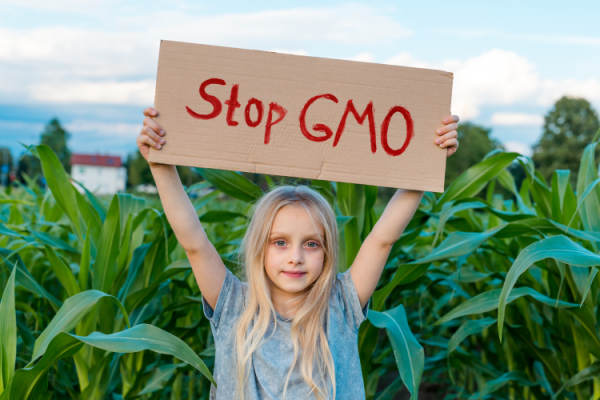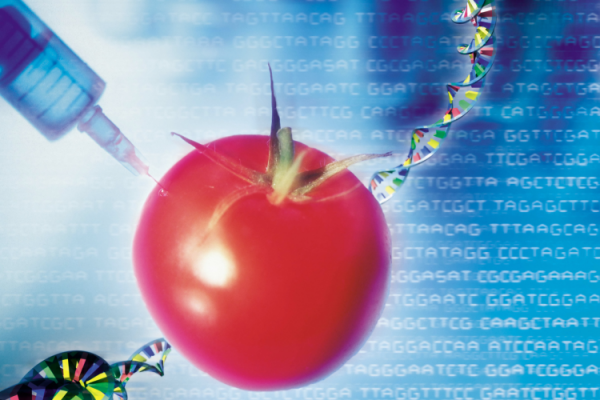When the potential for genetically modified meals was first mooted within the Nineteen Nineties, European public opinion was firmly opposed. Tabloid splashes linked GMOs to all the pieces from meningitis to a company plot to grab management of meals provide.
Throughout Europe, media protection of this much-misunderstood science reached a crescendo at a time when considerations over meals security and perceived ‘unnatural’ meddling in meals manufacturing was at fever pitch because of the BSE disaster. Even the-then Prince Charles intervened, writing to the Prime Minister of the time, Tony Blair, to criticise the event of genetically modified meals. In civil society, in the meantime, the likes of Greenpeace, 5 Yr Freeze and the Soil Affiliation had been spearheading a marketing campaign suggesting proponents of GMOs had been trying to place ‘revenue earlier than individuals’ and risking the well being of people and the pure world. By 1999, the dialogue was so frenzied that UK Cupboard Minister Jack Cunningham accused the media of ‘mass hysteria’ over the topic.
The general public backlash in Europe has meant GMO meals continues to be considered with a level of scepticism within the area. Nevertheless, there’s proof that this sentiment is shifting. Based on Eurobarometer analysis, EU residents involved in regards to the presence of GMOs within the surroundings decreased from 30% in 2002 to 19% in 2011, whereas the extent of concern about the usage of GM components in meals or drinks has dropped from 63% in 2005 to 27% in 2019.
Newer evaluation from the pro-GMO Alliance for Science (AfS) dug down into conventional and social media discussions of biotechnology. The peer-reviewed research recognized a ‘important drop’ within the prominence of the GMO discussions between 2018 and 2020. This, the researchers imagine, might level to a much less polarized debate on the topic.
“This looks like cautious excellent news for science,” mirrored research creator Mark Lynas, analysis lead on the AfS. “Given the worldwide scientific consensus on the security and utility of genetic modification, this means that misinformation about GMOs is shedding its potential to steer, even on social media.”
‘We’re transferring towards a extra beneficial dialog on GMOs’
The AfS research, funded by the Invoice and Melinda Gates Basis and compiled in partnership with media monitoring firm Cision, regarded on the quantity and tone of over 100,000 on-line and print articles printed in English in top-ranked media between 2018 and 2020 in addition to 1.7 million social media interactions. Leveraging over three years of steady monitoring and evaluation, it discovered that the general tone of the GMO dialog has been surprisingly constructive, averaging 73% both impartial or beneficial feedback. There was a divide between perceptions in conventional and social media, which had been 78% and 62% impartial or beneficial respectively.
Whereas the quantity of conventional media protection elevated through the research interval, social media dialogue of the problem dropped greater than 80% between January 2018 and December 2020, the interval coated by the research. Since fewer individuals are posting about GMOs it suggests the problem is changing into much less salient, the authors concluded.
“Our information counsel that throughout all media environments, we appear to be transferring towards a extra beneficial dialog on GMOs,” Lynas commented. “That is according to different measures of the ‘debate’ that seems to be waning in gentle of extra pressing, real-world challenges, like addressing dietary safety in a altering local weather.”
Analysts at Barclays Capital imagine this alteration in tone might have profound penalties for the event of artificial biology as a disruptor in client markets.
What do the market analysts imply by synbio? It begins with the science. The DNA of a cell tells it what to do – instructions like what proteins and enzymes to make. If scientists are capable of programme DNA in the identical means as software program engineers can programme computer systems, they will inform plant, animal, or microbe cells to provide goal molecules. This may be seen in motion in areas like precision fermentation, which might use enzymes to provide – as an illustration – animal-free dairy proteins.
“The important thing advantages of synbio are that it’s extra sustainable than conventional manufacturing processes, can present entry to hard-to-source components as they’re present in nature, and may help create components or merchandise which might be superior to what’s at present in the marketplace. Nevertheless, as a result of artificial biology is based on genetic engineering, merchandise could also be (although will not be by definition) thought of genetically modified organisms,” based on Barclays.
Defining GMOs: Does it matter?
At this level it’s maybe value pausing to think about the distinction between GE and GMO methods. Gene modifying instruments are used to generate modifications to the native genetic materials. In contrast to GMOs, which introduce novel configurations of genetic supplies sometimes derived from different organisms, gene modifying strategies modify present genetic materials. However, on the finish of the day, Barclays doesn’t suppose consumers will make this distinction.
“We imagine the nuances as to what qualifies as ‘GMO’ or ‘bio-engineered’, or ‘gene-edited’ are much less scrutinised at this stage. With ‘GMO’ being the extra longstanding time period, if an ingredient/product makes use of genetic engineering in any means, form or kind, we imagine a client might interpret that as being associated to GMOs and thus assign any preconceived notions round GMOs to that ingredient or product. The conflating of synbio with GMOs won’t matter if there wasn’t a long-standing stigma related to GMOs. However, the truth is that despite the fact that synbio is a means that genetic engineering can be utilized to learn shoppers and the surroundings, within the client area there’s the danger that the narrative might properly dovetail with the longstanding notion that GMOs will not be of profit to shoppers.”
Nonetheless, Barclays does detects a change within the GMO narrative. The funding financial institution lately carried out a survey of UK shoppers to evaluate the chance of them shopping for genetically engineered merchandise. The outcomes of the survey pointed to 2 key takeaways: age makes a distinction and ‘sustainability’ is a high precedence that ‘might sway selections’.
“The legacy GMO narrative seems to be fading; youthful UK adults are extra open to the idea of genetic engineering in client merchandise,” the analysts concluded. “The vast majority of UK adults would purchase a product that has a GE-ingredient, with the first driver being ‘sustainability’ – a pattern that’s amplified as age veers youthful and revenue strikes increased.”
Messages akin to ‘sustainable’ and ‘animal-free’ resonate extra with youthful and extra prosperous consumers and outweigh the ‘GMO-free’ declare for a lot of, it was discovered.
Will GMO regulation soften?
Profitable client hearts and minds is only one a part of the battle to unleash the disruptive potential of those rising applied sciences in Europe. Regulation is a completely completely different query. Reflecting the considerations of their residents, the EU and UK have traditionally taken a cautious method to GMO regulation – into which genetic engineering has additionally been bundled.
Within the wake of Brexit, there was some adjustment to this stance within the UK. The Division of Setting, Meals and Rural Affairs is dropping the danger evaluation requirement on gene-edited crop trials and has stated, sooner or later, it can transfer to vary the definition of GMOs to exclude gene-edited organisms. Moreover, the Genetic Know-how (Precision Breeding) Invoice 2022-23 has been launched to Parliament.
The argument can be being put ahead by the European scientific group {that a} rest in regulatory method is required throughout the bloc.
Mihael Cristin Ichim, of the Analysis Centre for Organic Sciences at Nationwide Institute of Analysis and Improvement for Organic Sciences in Romania, insists the softening angle of European residents to such applied sciences necessitates a brand new coverage route from Brussels.
“In contradiction with the final perception that the Europeans are towards GMOs, the considerations expressed by the EU residents towards the usage of GMOs in farming and meals have considerably decreased previously 20 years,” he steered. “The extra beneficial angle of the EU residents towards GMOs ought to ease the way in which and encourage a constructive change of the authorized framework that regulates the GM crops’ testing and business cultivation within the EU.”
Whereas genetic modification and modifying expertise has had a bumpy trip within the area, it will actually appear that European proponents aren’t but able to faucet out and admit defeat within the court docket of public opinion. And, certainly, there are actually some alerts that the tide may very well be beginning to flip.
Sources
‘The state of the ‘GMO’ debate – towards an more and more favorable and fewer polarized media dialog on ag-biotech?’
GM Crops & Meals
DOI: 10.1080/21645698.2022.2051243
Authors: Sarah Evanegaa, Joan Conrow, Jordan Adams & Mark Lynas
‘The extra favorable angle of the residents towards GMOs helps a brand new regulatory framework within the European Union’
GM Crops & Meals
DOI: 10.1080/21645698.2020.1795525
Creator: Mihael Cristin Ichim




